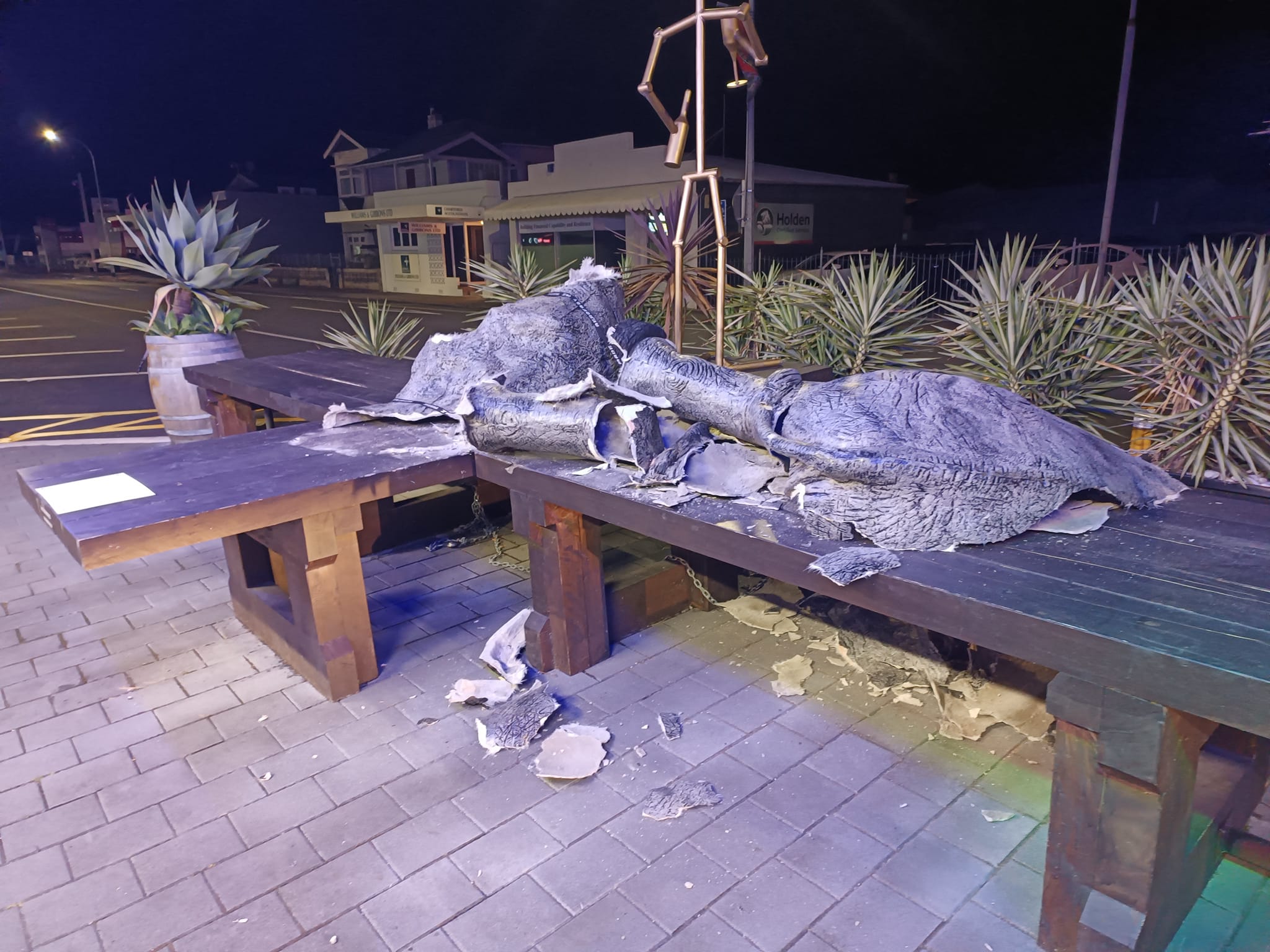The three men accused of damaging the $5000 elephant sculpture outside Gastronomics Restaurant in Thames are taking restorative steps to avoid a criminal conviction.
Appearing in the Thames District Court on April 12, Judge Dean Blair heard how one of the men was already going through the diversion process, while the other two would now have similar discussions with Police.
Diversion is a scheme operated by the NZ Police that allows first-time offenders to take responsibility for their offending outside the court system and avoid getting a criminal record.
Conditions of diversion focus on rehabilitation and putting things right.
Reparation could include, for example, writing a letter of apology to the victim/s, paying them money to compensate them, or fixing any damage to property, such as painting over graffiti.
The men – who have been charged with intentional damage (no interest), graffiti, and theft under $500 – were earlier placed on bail and were not allowed to be within five metres of Gastronomics, Thames Valley Toyota, and Art Effects, or to threaten violence to any person or property.
It came after an incident which occurred shortly around 11pm on January 16, when the men travelled to Thames and carried out damage at multiple locations, including destroying the well-known elephant statue outside Gastronomics.
Police prosecutor Sergeant John Taaka said diversion was the right step in this case.
“They are first-time offenders, they appear to show remorse, they want to put things right, and they understand that what they did was wrong,” he told The Profile. “There was an alcohol element to this offending, and they’re young, so just like anybody else they should have every opportunity to put things right, so when they do move on with their lives, they can do so without being judged.”
Diversion is usually offered if: it is a first offence; there has been an admission of guilt and acceptance of responsibility; and the offence is a less serious one.
Sergeant Taaka said diversion in this case would be an alternative action in which the restorative element was one of reparation.
“Potentially, we might have a meeting with the victims so the [offenders] can explain and apologise. There’s also community work, which is restoring the damage they did to the community, and so far, I’m led to believe they’re keen as to do that.”
Two of the men will appear in Thames District Court on May 24, while the third will reappear on June 10.

Elly the elephant 'didn't survive' the three vandals who attacked her overnight. PHOTO: SUPPLIED
Elephant attackers on restorative road




